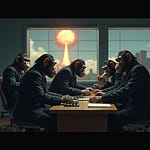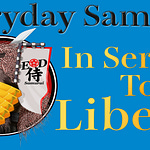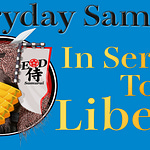Explore the complexities of governance, the inherent conflicts of political power, and the essential role of the individual arms and militia in safeguarding civil rights while also ensuring constitutional order.
The Inherent Conflict of Governance
Governance, by its very nature, is fraught with contradictions. If we accept the principle that each individual owns themselves and is entitled to security, it follows that they should have the freedom to choose who protects them and advocates for their rights. However, when a political organization claims to represent a collective body without explicit contracts with each individual, a moral hazard arises. Decision-makers may prioritize their self-interest over the needs of those they claim to represent.
In a compound republic like the United States, the Constitution delegates specific powers to political officeholders, yet it inadvertently allows public officials a monopoly on the use of force. This situation sets the stage for potential abuses of power. To address these challenges, there must be mechanisms for redress and correction to ensure compliance with the governing charter.
The Role of the Militia
The solution to the governance dilemma lies within the framework of the militia, as outlined in the Constitution. Article One, Section Eight, Clauses Fifteen and Sixteen, along with Article Two, Section Two, and the Second Amendment, collectively position the people as the primary law enforcement body across the federation. The militia serves as a check to determine which laws are enforced and how they are implemented, ensuring that laws reflect the needs of individuals in their communities.
Local Control and Power Decentralization
Unfortunately, political organizations often centralize power, which can corrupt the law from a protective tool into a mechanism for exploitation. Without a decentralized enforcement structure, abuses proliferate, benefiting those in power while undermining the average citizen's rights. The assertion that a government exists by, of, and for the people rings hollow if a small subset of the population dictates the rules and costs associated with maintaining law and security.
Moreover, the security of life, liberty, and property is jeopardized if public officials can arbitrarily seize or destroy these rights. This principle is underscored by the Second Amendment, which emphasizes the necessity of well-regulated militias for the security of a free state. The militia is not merely a relic of the past; it is a vital mechanism for ensuring that the people retain control over the use of force.
The Consequences of Monopoly Power
The most pressing law enforcement task within any political union is to prevent a monopoly on the use of force from forming and to ensure it is not controlled by those who profit from taxation. Under such monopolistic conditions, the cost of security and justice inevitably rises, eroding the populace's resources while diminishing the quality of justice. This decline leaves citizens increasingly insecure in their lives, liberties, and property.
Political philosopher Niccolò Machiavelli famously stated that good law cannot exist without a good militia. For Machiavelli, the militia was foundational to all republics. This principle remains crucial for maintaining constitutional order today. The Second Amendment's purpose is to prevent monopolistic governance by ensuring that the right to keep and bear arms is a necessary condition for securing a free state—one that is insulated from the corruption and exploitation associated with political monopolies.
Reasserting the Role of the People
In an era where bureaucratic reliance is prevalent, emphasizing the originally intended role of well-regulated, decentralized militias is essential. Tolerance of political monopolies that enjoy exclusive legal privileges fosters an environment ripe for tyranny and impoverishment. The populace must reassert its position as the driving force behind government existence, whose primary purpose is the security of life, liberty, and property.
Liberty and property cannot thrive when politicians and bureaucrats dictate the narrative, policies, and governmental execution imperatives. The concept of "We the People" must extend beyond mere rhetoric; it should reflect the reality that the populace is as integral to governance as those holding public office. Otherwise, the ideal of equality under a common law becomes a mere facade.
Conclusion: A Call for a Balanced Governance Structure
The discourse surrounding governance, power distribution, and the role of the militia highlights the complexities of ensuring a just and equitable society. By recognizing the need for decentralized power and the importance of local militias, citizens can reclaim their rights and reinforce the principles of democracy. In doing so, the essence of governance—serving the people—can be restored, ensuring that liberty and justice are not just ideals but lived realities for all.









